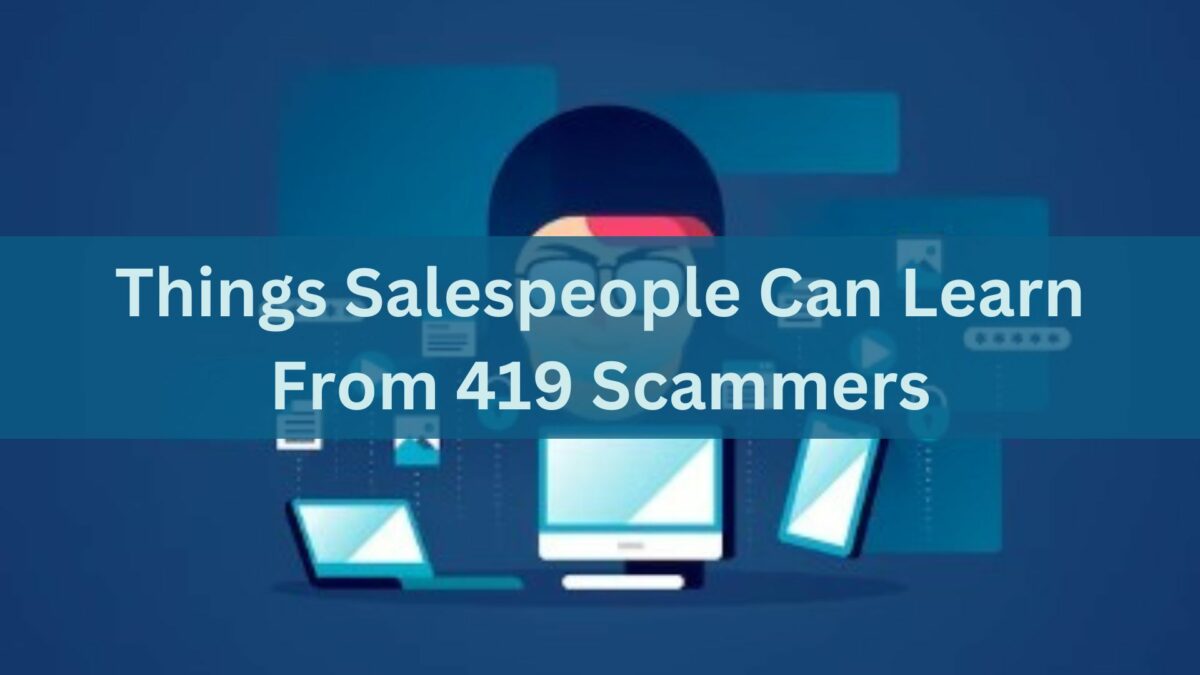“The money’s the same, whether you earn it or scam it.”
–Bobby “The Brain” Heenan

Recently, Microsoft conducted a study of Nigerian scam e-mails to determine why the e-mails are so blatantly, obviously illegitimate. If you’ve read one of these e-mails, it’s pretty clear that the son of a Nigerian oil baron doesn’t have $53 million to give to you. The typos are rampant, and these “barristers” and “diplomats” readily admit that they are not from the United Kingdom or the United States. Everything about these e-mails screams out “SCAM” to common sense.
Yet, as the study shows, the scammers aren’t appealing to those with common sense. What they are trying to do, although undoubtedly few, if any of the scammers realize (or know about) it, is reduce the incidence of false positives. A false positive, in this case, is someone who would respond but would then later on catch on that the offer was a scam. The scammer will have wasted time and resources trying to get money from someone who will not give him money. It’s much simpler to go after the easy mark, the person who will readily run to the Western Union and ship away thousands of dollars after two e-mail exchanges than to work for months trying to convince the dubious with an uncertain payout at the end of the line.
If you’re in sales, you’ve probably experienced the same thing. You’ve done endless calls, dinners, meetings, and presentations with a lead who always seems on the fence but can never commit. What are Nigerian 419 scammers doing right that you’re not?
- The communication weeds out the uninterested. By writing in poor English and making outlandish claims, the 419 scammer provides enough information for those who are not his target to make a decision to walk away from the transaction.
- Pre-qualify the lead. By the second or third communication, the 419 scammer is talking money and how much it will cost (initially) to enter into the transaction. This ensures that the target has money enough to do the transaction.
- Get the target emotionally involved. The more emotionally committed someone is to an idea, the more likely he is to invest resources in the idea.
- Don’t spend time on those unlikely to provide a return. The more effort that a target requires out of the scammer, the more likely the scammer is to drop the target and move on to someone who requires less work. The pattern of behavior will be the same after the close, too, if you do close the sale. They’re called “customers from hell.”
- The bigger the net, the more fish you’ll catch. 419 scammers send out e-mail blasts to thousands and sometimes millions of e-mail addresses. Even though the response rates are exceptionally low, they benefit from the law of large numbers. The marginal cost of an incremental e-mail when sending out a blast that large is effectively zero, so it’s more effective for the scammer to send out as large of a blast as possible. Therefore, the more leads you have, the more chances you have to convert one.
419 scamming is a big business. Otherwise, it wouldn’t draw as many scammers as it does. The ethics behind the scamming industry are abhorrent, but there are lessons to be learned in the process which salespeople can use to ethically increase sales.
Want to help fight 419 scammers? Join ScamWarners and 419 Eater.
What other lessons can salespeople learn from Nigerian scammers? Give us your ideas in the comments below!
Author Profile
- John Davis is a nationally recognized expert on credit reporting, credit scoring, and identity theft. He has written four books about his expertise in the field and has been featured extensively in numerous media outlets such as The Wall Street Journal, The Washington Post, CNN, CBS News, CNBC, Fox Business, and many more. With over 20 years of experience helping consumers understand their credit and identity protection rights, John is passionate about empowering people to take control of their finances. He works with financial institutions to develop consumer-friendly policies that promote financial literacy and responsible borrowing habits.
Latest entries
 BlogJuly 8, 2024How to Fast-Track Approval for Section 8 Vouchers
BlogJuly 8, 2024How to Fast-Track Approval for Section 8 Vouchers BlogJuly 8, 2024Unlock Apple Business Credit with No Credit Check Needed
BlogJuly 8, 2024Unlock Apple Business Credit with No Credit Check Needed BlogJuly 8, 2024A $18 Million Per Year Investment Plan for Democrats to Control the Texas House
BlogJuly 8, 2024A $18 Million Per Year Investment Plan for Democrats to Control the Texas House Low Income GrantsSeptember 25, 2023How to Get a Free Government Phone: A Step-by-Step Guide
Low Income GrantsSeptember 25, 2023How to Get a Free Government Phone: A Step-by-Step Guide

